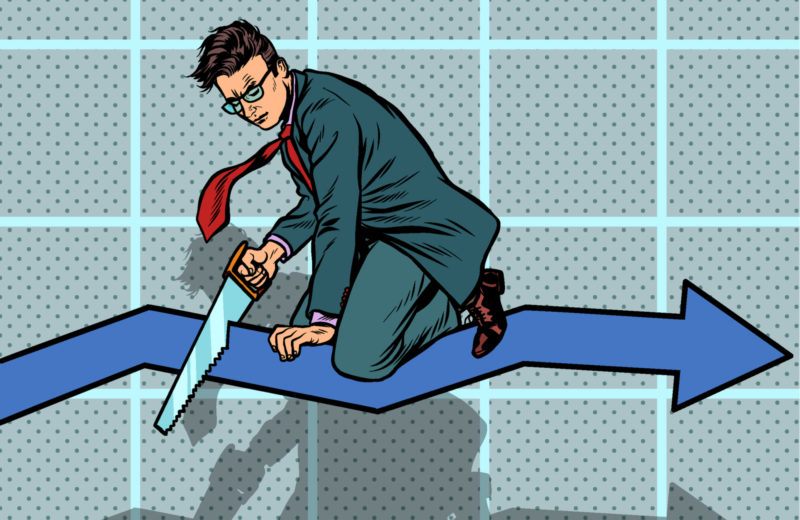Incompetent Experts and Bad Government

The late Richard Feynman, one of the 20th century’s eminent physicists, famously said, “Science is the belief in the ignorance of experts.” Unfortunately, the response of experts to the coronavirus pandemic has vindicated Feynman’s claim.
Experts in the supposedly scientific fields of public health and economics have made a mess of things. Their failures would be comedic, were the consequences not so tragic. Instead of capable service for the public’s welfare, the American people have been made to suffer incompetence and malfeasance. Unless we critically examine the failure of experts, we invite similar blunders in the future.
In terms of incompetence, it would be difficult to top this country’s public health officials. Case in point is the Centers for Disease Control and Prevention. The CDC, as it describes itself, “saves lives and protects people from health, safety, and security threats.” In truth, it has directly contributed to the opposite.
One glaring failure of the United States in regards to the pandemic is testing. We lag significantly behind other countries. This is largely the CDC’s fault. The virus genome was mapped in January, and private tests were available not long after. But the CDC ordered these private labs to halt, coming up with its own test, which proved to be defective.
In fact, many of the testing kits assembled by the CDC were contaminated! Had the CDC not dropped the ball, we could have moved towards mass testing much sooner. This in turn would lessen the economic harm of the several states’ stay-at-home orders. In other words, the CDC’s incompetence is directly responsible for thousands of lives lost and trillions of dollars in economic damage.
But as bad as the CDC is, they can only be charged with incompetence, not malfeasance. The latter indictment applies to America’s economic experts, especially those in charge of monetary policy. The Federal Reserve is charged with managing the country’s money supply, in the service of full employment and price stability. Their mandate is strictly monetary policy: making sure markets have adequate liquidity to operate at their full potential. But ever since the 2007-8 crisis, the Fed has flirted with crossing the line between monetary and fiscal policy.
With the coronavirus pandemic, the Fed has brazenly stepped over that line. Ostensibly to support the economy, the Fed is buying corporate bonds, commercial paper, and municipal bonds. The planned size of this largesse (so far) is a cool $2 trillion. In other words, the Fed is picking winners and losers.
It has definitively switched from referee to player in the game, and since the Fed has a monopoly on money creation, it’s the biggest player around. This is malfeasance, because monetary policymakers can and do know better. They are not supposed to promote a particular allocation of resources. Their job is to give the market what it needs to allocate resources for itself. Direct resource allocation—fiscal policy—is the exclusive prerogative of the people’s representatives, in Congress assembled. Thus, the Fed is usurping a key feature of Congress’s Constitutional authority. Since Fed officials are not even subject to the relatively weak discipline of elections, this is a particularly egregious transgression of the most basic norms of republican democracy. The essence of the Fed’s malfeasance is that it is now operating outside of the rule of law.
Ignorance and malfeasance: this is what the American people have been forced to endure from those who govern them. We have no reason to expect things will be different in the future, unless we unequivocally demand it otherwise. Experts have a role to play, but they are properly the servants of the people, not the masters. Americans are entitled to competent governance and their Constitutional rights. Rule by experts threatens both.








